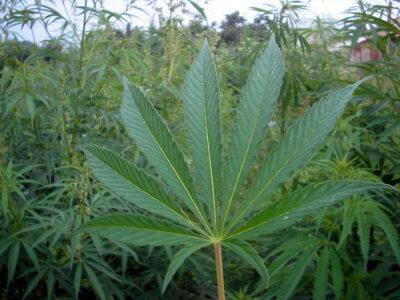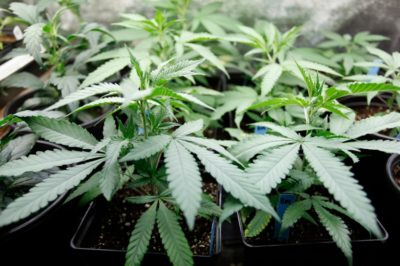|
Listen To The Article
|

Image source: homesteadnotes.com
A story out of Oregon underscored the absolute insanity which comes from a bureaucracy-fueled, over-regulated nation. Joining with a number of other states which have emerged from their power-hungry desire to control aspects of American’s lives that they have no business messing with, Oregon’s legislature officially recognized hemp as a separate entity from marijuana. But the Keystone Cops aspect of the story wasn’t done just yet.
The kicker in Oregon is that after it was made legal to grow … it still wasn’t legal to grow. Sure, you can apply for one of three licenses required to grow it (our federal and state governments are absolutely in love with licenses), but, technically, you can’t get the seeds needed, because they’re still regulated by the DEA for importation as a “schedule 1 substance.” Insanity. But there’s hope. More about that in a bit.
How did we get here? It all started with the federal government’s banning of marijuana. In their fear of the possible consequences, farmers also stopped growing hemp, just to be sure. Then it inexplicably became illegal to grow it. Never mind the fact that hemp and marijuana are not precisely the same thing, and no one gets high from hemp. No, those facts are irrelevant. My own theory is that some industrial corporations influenced the ban, but that’s also beside the point here.
The Miracle Plant
For those unfamiliar, hemp has been grown for use for thousands of years. It can be processed to make paper (save the trees, right?), textiles, clothing, cordage, mulch, animal and bird feed, biodegradable plastics, construction products, health foods, bio-fuels, moisturizers, cooking products, foods, teas, milk, and much more. Not only that, but hemp grows in almost any soil and climate conditions. (Read Off The Grid News’ story, “5 Unbelievable Survival Uses For Hemp,” here.)
One acre of hemp will provide as much fiber as 2-3 acres of cotton. It’s stronger, softer and lasts twice as long as cotton, and doesn’t mildew. One acre of hemp also produces as much paper as 2-4 acres of trees. Hemp paper uses less toxic chemicals to produce than tree paper, will last hundreds of years without degrading, and can be recycled more times. I could go on with these comparisons for pages, but you probably get the point. It is, quite frankly, a wonder-plant. Yet it’s been illegal for 60 years, and it isn’t a drug. Insanity.
Moving Forward
 Finally, however, we may be moving ever so slightly back into the sane world, in terms of hemp anyway. The Oregon move wasn’t an isolated incident. In fact, as of February, 21 states had defined industrial hemp as distinct and had removed the barriers to producing it. There is also a bipartisan bill in Congress to do the same from a federal perspective, which would also remove the DEA control over the seeds.
Finally, however, we may be moving ever so slightly back into the sane world, in terms of hemp anyway. The Oregon move wasn’t an isolated incident. In fact, as of February, 21 states had defined industrial hemp as distinct and had removed the barriers to producing it. There is also a bipartisan bill in Congress to do the same from a federal perspective, which would also remove the DEA control over the seeds.
A federal change would not override any remaining state restrictions on the industrial growing of hemp, but it’s likely that any remaining restrictions would soon be lifted if and when the federal bill passes. If not immediately, then surely within a tight time frame, as the remaining states will see the fruits being yielded by states such as Kentucky that have already instituted pilot growing programs to jump start the industry and bring business growth in their states.
And the Homesteader?
Here lies the final barrier to growing hemp for those who seek a self-sufficient lifestyle. A license – or licenses – must be applied for and approved before you can legally grow the plant yourself. It remains to be seen whether the licenses will be affordable and granted to homesteaders, but it’s worth monitoring.
Long before industrialize society existed, hemp provided numerous benefits to people and made life much easier. And it could do so again.
Do you believe hemp could benefit homesteaders? Share your thoughts in the section below:
Harness The Power Of Nature’s Most Remarkable Healer: Vinegar
 Off The Grid News Better Ideas For Off The Grid Living
Off The Grid News Better Ideas For Off The Grid Living



